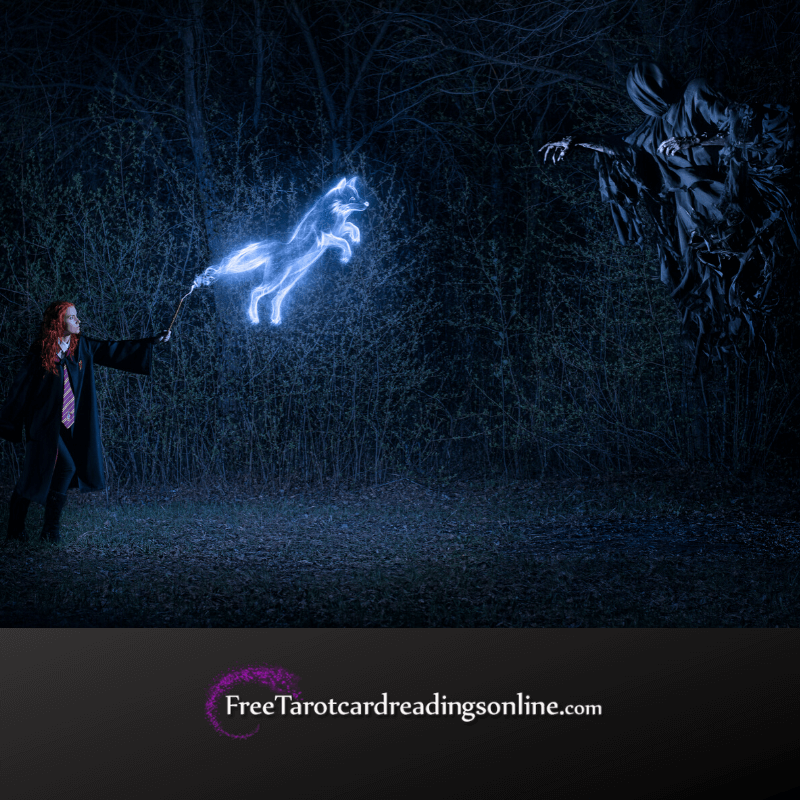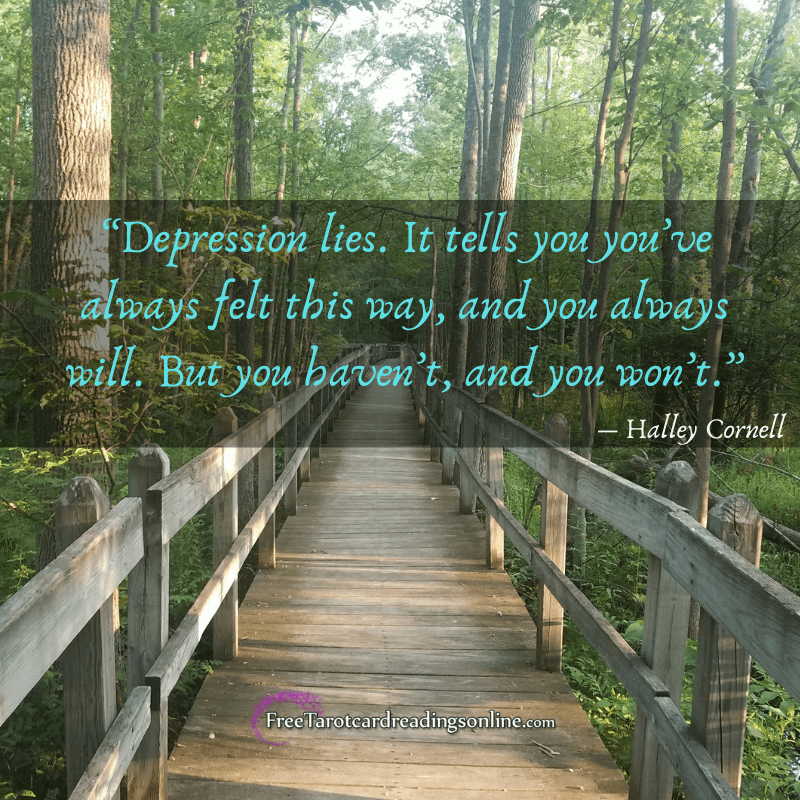
Learn How Tarot May Help You Handle Depression & Anxiety
Can tarot cut through the grey fog of depression? Or, the restless energy of anxiety? Believe it or not, many believe tarot can help people with depression and anxiety.
Can it heal or fix these mental health disorders? No, but tarot can help shed light on your thoughts and on how you’re feeling. It can give words and images to things that are hard to express. Most importantly, it can help you reconnect with yourself in times when you feel disconnected and isolated.
Depression and anxiety
Before we talk tarot, we first need to understand depression and anxiety. These mental health disorders are different. However, many who experience one also experience the other.
Symptoms of depression include:
- Feeling hopeless, helpless, and guilty
- Feeling sad, tearful, irritable, anxious or worried
- Lacking motivation or interest
- Avoiding hobbies and interests
- Changes in appetite
- Lack of energy
- Disturbed sleep
- Avoiding contact with friends and family
Symptoms of anxiety include:
- Restlessness
- Irritability
- A feeling of dread
- Feeling on-edge
- Trouble concentrating
- Trembling or shaking
- Tiredness
- Muscle aches, headaches, and stomach aches
Depression and anxiety require special attention and personalized protocols so individuals can cope on a daily basis. Tarot should never be used in the place of therapy or medications. But it can offer gentle support. As you’ll see, it offers special light to those who seek it.
1. Tarot is Universal
Tarot is made up of 78 cards with illustrations depicting different symbols, scenes and archetypes, like strength, ambition, and passion. In other words, tarot represents a wide variety of experiences we all share.
These images might help express what’s happening in your mind and your current experience. And because tarot uses universal themes and archetypes, you’re almost always bound to find something you can identify with, and themes that resonate with you.
2. Tarot Helps us Feel Less Alone
Feeling misunderstood is one of the most crushing human experiences. Individuals with depression or anxiety may feel misunderstood, and have a hard time expressing themselves.
Tarot invites us to connect with the scenes playing out on each tarot card. When you identify with the scene, images or archetypes, tarot actually helps you feel seen, understood and less alone.
3. Discover ways to express your experience
Thanks to tarot’s visual images, themes, and archetypes, you can start to put together a storyboard for yourself. Using these images, you can externalize your thoughts and find expression for everything you’re dealing with.
When using tarot for depression and anxiety, it isn’t fortune-telling. It’s a tool to help you meditate and ponder; to understand yourself better; to figure out why you’re behaving or not behaving in certain ways; to open up; to start asking questions. It can also help to normalize emotions that you thought were too difficult or even too embarrassing to broach.
In other words, tarot provides a safe framework and a safe setting to face your hopes and fears. This is an amazing gift because when we’re overwhelmed by feelings, or when we aren’t willing to feel them anymore, we get stuck.
Instead, when we’re able to engage with our thoughts and feelings, it creates a moment of self-reflection that can help improve mental health.

4. Connect with Your Intuition
When we’re going through a hard time, we might look outside of ourselves for solutions. With tarot, it’s different. Tarot is a powerful way to connect to a calm, peaceful center that can provide answers and reassurance. For some, this calm center is called intuition, the inner voice, inner knowing, or your essence.
How to Use Tarot for Anxiety and Depression
For individuals struggling with either anxiety or depression, or both, you may want to do tarot “right”. But there’s no rulebook or dogma to follow when it comes to tarot. Instead, consider these three guidelines.
1. Practice Safely
Some people carry trauma and painful memories inside. Part of the healing process is opening up and exploring these triggers. However, it’s important to do this in the right setting, and with a professional who can hold space for you while you process these difficult emotions. In these types of situations, it may not be supportive to practice tarot alone.
2. Get Grounded First
Tarot can be a powerful tool because it allows us to connect to our intuition. But this can be challenging if we’re distracted. To help you make the most of your tarot reading, take a few minutes to ground your body and create a feeling of calm and safety. You can do this by listening to a guided meditation or by practicing breathwork.
3. Contemplate
There’s no “right” or “wrong” way to do tarot. Yes, each card has an assigned meaning, but tarot is an invitation to sit with the card’s image and contemplate what it could mean for YOU.
For example, drawing the Devil might be an invitation to ask where you might be putting too much energy to the detriment of yourself. Or, if you pull the Death card, check-in: Do you need to let go of, or release something? What needs to end in your life so you can make way for new beginnings?
If you’re practicing tarot together with someone else, you can discuss what’s coming up for you. Or, if you’re practicing alone, you can journal your insights privately.
Always remember that if the card doesn’t resonate with you, you don’t have to force it to mean something. If it’s not speaking to you that day, that’s entirely okay.
Tarot can help with anxiety and depression. It shines a light on beliefs or feelings that might have been hard to articulate. It helps you reconnect with yourself and your intuition in a time that might otherwise feel fractured, disconnected and isolated.
Tarot is a supportive tool, and you can integrate this practice into a multi-faceted approach to caring for your mental health.
Bonus Information:
Here is an article from WebMD with 10 Natural Depression Treatments and Tips.
